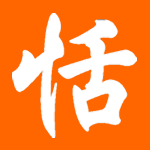to: tiangotlost@gmail.com
date: Wed, Jan 28, 2009 at 2:14 PM
subject: Requesting help - possible wrong kanji for tattoo
I was recently in Hawaii, got a tattoo that was suppose to be the kanji for HOPE however now that I am home I have done some searching and everything I am finding is not what I actually got. Could you possibly have any idea what actually I have now tattoo'd to my back?
Kim
期 by itself means "a period of time, date".
期望 is "hope" and 希望 is more common.


My dictionary agrees that 期望, can mean hope, but in Japanese (and she said she wanted the kanji), 希望 would be much more common.
ReplyDeleteIn Japanese, 期する means something like "to hope," but the noun form is usually 希望, I think. Or maybe they meant 期待?
ReplyDeleteThat's actually not too bad for her. The kanji looks relatively well drawn, and she could just have the second character added below.
ReplyDeleteEh, could've been worse. What Rob pointed out is likely what happened: whoever did this used a literal translation of "to hope/expect" and just took the first character (even then, 期する wouldn't quite mean what she thinks it means). KF
ReplyDelete期待 is also hope, or better say expectation.
ReplyDeleteAs a Chinese American and teacher of the Chinese language, I frequently lament at these sorts of well intentioned but misguided forms of expression.
ReplyDeleteHere is her answer:
First, one needs to understand that many Chinese concepts require word combinations or compounding in order to properly convey an idea. There are many different and distinct words which have the same pronunciation. Conversely, there can be multiple pronunciations of the same written word.
期 has two pronunciations: qī and jī. When pronounced qī, it means, depending on the usage, "time period", "phase", "stage", "hope, "expect". When pronounced jī, i means, "completely". So, although "hope" is one of the meanings of this word, one needs to combine it with another word if one wants to convey the concept of "hope" in its most profound sense.
希望 xī wàng, is a noun and verb. It means "hope" , as in, "I hope she will listen to my suggestions.
期望 qī wàng, is also a noun and a verb. It means "to expect", "to hope earnestly" and "expectation", "hope", as in "Her parents must have high hope for her."
Also acceptable as a verb is 期許 qīxǔ for "hope", "expect".
指望 zhǐ wàng, as a verb, means "look too", "count on". As a noun, it means "prospect", "hope".
想頭 xiǎng tóu is a noun. Colloquially, it means "idea" but also means "hope".
祈望 qí wàng is a verb and noun, meaning "hope", "wish".
跂望 qǐ wàng, also a verb/noun, means "hope", "look forward to"
Finally, there is 冀 jì, meaning "hope", "long for", "look forward to". It is also a short name for Hebei province in China and used as a surname.
Or to paraphrase, "context is important" and your ass is not context.
ReplyDeleteMaybe she should learn propper english grammar before getting hanzi tattoos.
ReplyDelete